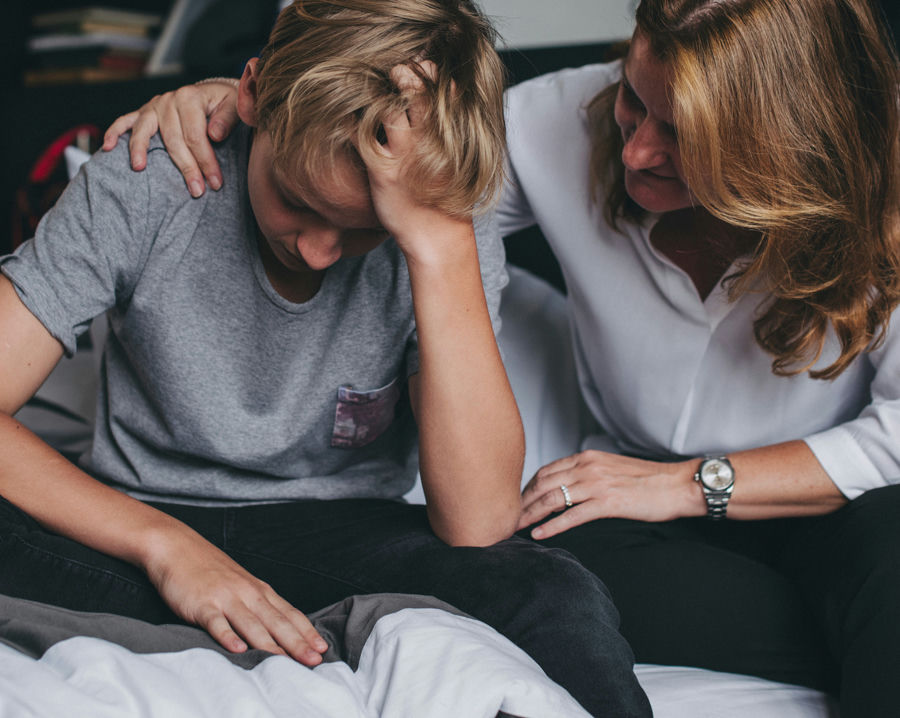Teen grief is a complex emotional experience shaped by developmental changes, identity formation, and social pressures. Unlike adults, teens often lack the language or emotional tools to articulate their pain, which can lead to withdrawal, irritability, or even risky behaviors. The loss of a loved one during adolescence can disrupt a teen’s sense of stability and challenge their beliefs about safety, permanence, and the future.
Grief in teens doesn’t follow a predictable path. Some may appear unaffected, while others cycle through intense sadness, anger, guilt, or confusion. These reactions are normal, but when grief begins to interfere with school, relationships, or daily functioning, professional support becomes essential. Teens may benefit from safe spaces where they can express themselves without judgment and begin to make sense of their loss.
Supportive adults play a critical role in helping teens navigate grief. Listening without trying to fix, validating their emotions, and encouraging healthy coping strategies can make a meaningful difference. Peer support groups, creative outlets, and consistent routines also help teens feel grounded during a time of emotional upheaval.
For families seeking compassionate, teen-focused care, Blume Behavioral Health offers specialized grief treatment. Their holistic approach helps adolescents process loss, build resilience, and reconnect with hope.
Grief in adolescence is deeply influenced by the developmental transitions teens undergo. Unlike younger children, teens are actively forming their identities, striving for independence, and managing increasingly complex social relationships. These changes heighten emotional sensitivity, making grief more intense and multifaceted. Adolescents may grapple with existential questions, peer expectations, and fluctuating hormones, all of which can complicate their mourning process. Understanding these layers is essential for providing support that respects their evolving emotional, cognitive, and social needs during this vulnerable stage.

| Developmental Area | Impact on Grief |
| Cognitive | Teens begin to understand death as permanent and universal, but may struggle with abstract concepts like meaning and legacy. |
| Emotional | Heightened emotional sensitivity can lead to intense reactions such as anger, guilt, or numbness. |
| Social | Peer relationships become central; teens may feel isolated if their grief sets them apart socially. |
| Identity Formation | Loss can disrupt self-image and future plans, especially if the deceased played a key role in their life. |
| Autonomy vs. Dependence | Teens may resist adult support, yet still need guidance and structure to process grief. |
Grief symptoms in teens can manifest emotionally, behaviorally, physically, and cognitively—ranging from sadness and irritability to sleep disturbances and difficulty concentrating. These responses often shift over time, reflecting the teen’s developmental stage, coping style, and support system. Recognizing this variability is key to providing appropriate care and understanding the evolving nature of adolescent grief.
Grief in teens doesn’t always resemble traditional sadness. Instead, they may laugh, joke, withdraw, or even act out—behaviors that can be misunderstood by adults. These responses are often healthy coping mechanisms, not indicators of denial, disrespect, or indifference. Recognizing that grief can manifest in unexpected ways helps caregivers and educators offer more empathetic, developmentally appropriate support as teens navigate the emotional complexities of loss and identity formation.
Dr. Therese Rando’s 6 R’s of Mourning offer a valuable framework for understanding how individuals, especially teens, process grief. These stages—Recognize, React, Recollect, Relinquish, Readjust, and Reinvest—highlight the emotional and psychological shifts that occur after a significant loss. Importantly, the process is not linear; teens may cycle through these stages repeatedly as they grow and encounter new life experiences. This model encourages compassionate, flexible support tailored to each teen’s evolving grief journey.
Teens must acknowledge that a loss has occurred. This can be difficult if the death was sudden, traumatic, or stigmatized (e.g., suicide or overdose).
Support Strategies:
This involves expressing emotions and reactions to the absence of the loved one.
Support Strategies:
Teens benefit from remembering the person who died and revisiting shared experiences.
Support Strategies:
This step involves accepting that the relationship has changed and cannot continue in the same way.
Support Strategies:
Teens must adapt to life without the deceased, which may include new roles or responsibilities.
Support Strategies:
This final stage involves finding meaning and purpose beyond the loss.
Support Strategies:
Grieving teens thrive with supportive companions rather than fixers. Adults play a vital role by offering consistent presence, empathetic listening, and nonjudgmental understanding. Instead of rushing to solve or minimize pain, they create safe spaces where teens feel seen and heard. This approach honors each teen’s unique grief journey and fosters emotional resilience through trust, patience, and compassionate connection.
Grief during adolescence can be overwhelming, especially when it disrupts daily functioning, relationships, or emotional stability. At Blume Behavioral Health, we recognize that teen grief is not a one-size-fits-all experience. Our specialized programs are designed to meet teens where they are—emotionally, developmentally, and socially—offering a safe, supportive environment to process loss and begin healing.

Blume offers a full spectrum of therapeutic services tailored to the unique needs of adolescents:
At Blume, our approach is designed to meet the unique needs of teens and their families. Our teen-focused programs provide developmentally appropriate care that respects both emotional maturity and autonomy. Through a holistic approach, we integrate emotional, psychological, and spiritual healing practices that support the whole person. With trauma-informed care, we remain sensitive to grief-related trauma, sudden loss, and adverse experiences that may shape a young person’s recovery journey. Finally, our commitment to community integration fosters peer mentorship, alumni involvement, and lasting connections that help sustain growth well beyond treatment.
Our team of compassionate clinicians brings extensive expertise in adolescent mental health and grief recovery. Each professional is dedicated to fostering a safe, affirming space where teens can heal, grow, and feel truly understood. If you’re curious about the individuals behind our care, we invite you to meet our team. You can also explore our teen treatment programs in California to learn how we tailor support to meet each teen’s unique emotional and developmental needs.

Whether your teen is mourning a parent, sibling, friend, or mentor, Blume offers a path forward. We understand that grief isn’t something to “fix”—it’s a journey to walk through with support, patience, and care. If you’re ready to explore treatment options or have questions about our programs, please contact us. We’re here to help every step of the way.
